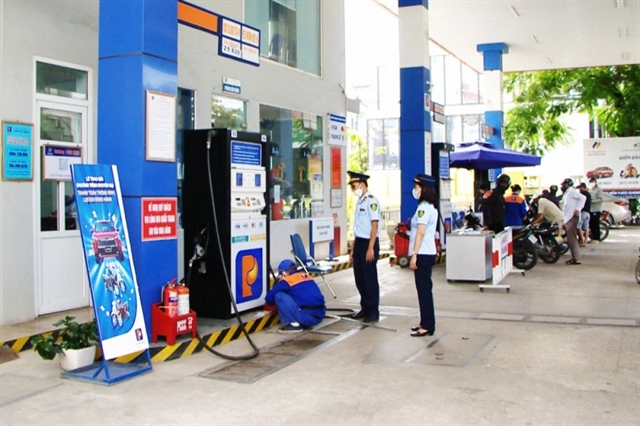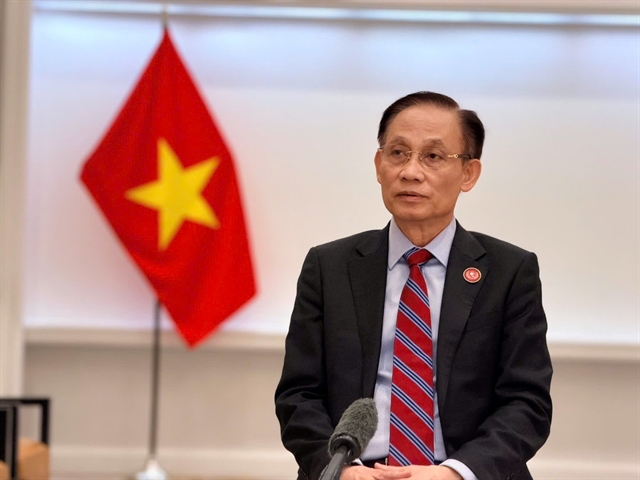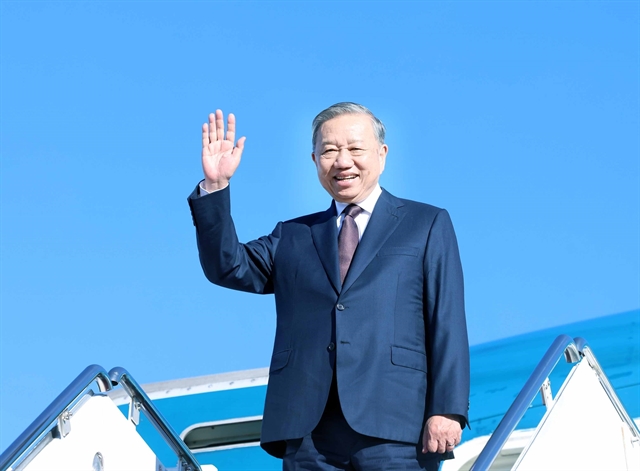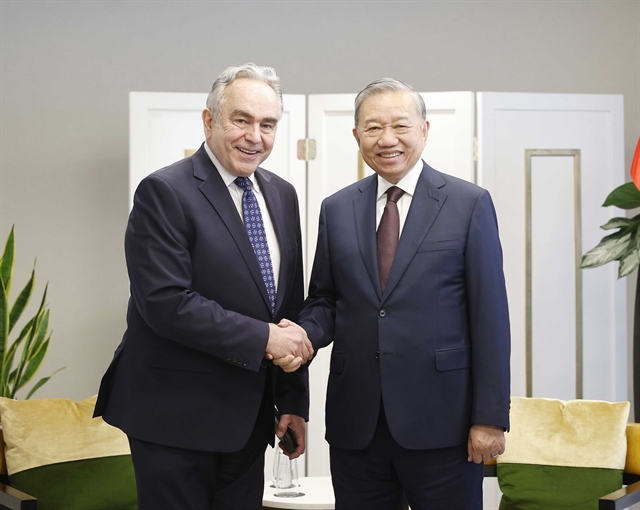 Economy
Economy


|
| Inspection by market watch officers at a station in HCM City. VNA/VNS Photo |
HÀ NỘI - The Ministry of Finance (MoF) has maintained its position that the Ministry of Industry and Trade (MoIT) should be the sole authority governing fuel trading and retailing activities in the domestic market.
The statement was made by the MoF in response to an earlier proposal by the MoIT to keep the existing joint management by the two ministries or to transfer full management to the MoF.
The ministries have been assigned the task to draft amendments to decrees 95/2021/NĐ-CP and 83/2014/NĐ-CP on the management of fuel trading and retailing activities to suit current conditions.
According to the MoF, fuel management falls under the jurisdiction and authority of the MoIT yet the management of the Fuel Stabilisation Fund and calculation of retail fuel prices were still set by the MoF was a cumbersome system that often resulted in unnecessary complications and confusion.
In addition, since the MoIT is the only authorised governmental body with the power to grant licences to fuel traders, and to issue guidelines for fuel import/export, distribution and production, it is only logical for the MoIT to be in charge of all trading activities within the country.
"The idea is someone who is running the system should know best how to calculate retail prices to best respond to market developments and how to best monitor and manage trading activities," said the MoF in a statement made public recently.
According to the ministry, having one more authority (the MoF) will just further complicate the process with little to no benefit added as adjusting the retail fuel prices should be based on input and operation costs.
The MoF also requested a remark, included in a report to the central government by the MoIT, which said the underlying reasons for fuel disruptions in the domestic market last year, which resulted in a large number of fuel stations closing down, was "the costs to conduct fuel trading activities were not fully reflected in retail prices, causing traders and retailers financial losses and hurting their sales incentives" to be removed.
The ministry said as domestic fuel prices largely depend on global oil prices (60-80 per cent of the basic costs for traders), major price fluctuations, as seen last year, inevitably had an effect on traders and retailers. This was on top of a host of other issues including competition, waste reduction and operational costs of traders.
Price calculations (done by the MoF), however, have been done strictly following current regulations and adjusted a number of times based on market developments and traders' feedback.
In order to help drive costs down, the MoF suggested the MoIT conduct studies and reviews in order to remove middlemen from the distribution system and more importantly, to establish a minimum bonus for retailers to provide them with incentives to push sales and minimise the risk of market shortages.
In addition, retailers should be able to buy from other suppliers, rather than a small number of designated traders, especially when said traders are unable to ensure ample supply to the market.
The MoF said a system of electronic invoices should be implemented and made a prerequisite for all fuel traders to enter and participate in fuel trading from now on. VNS




